|
Jake Gyllenhaal in The Guilty (2021) Following the 2015 release of Southpaw, Antoine Fuqua and Jake Gyllenhaal reunite for an American retelling of The Guilty, originally a Denmark film directed by Gustav Möller. Taking place over the course of a single morning, demoted police officer Joe Baylor (Gyllenhaal) answers calls at a 911 dispatch desk. A wildfire rages over Los Angeles as he settles into a repetitive shift. Then one call comes in from a woman in grave danger using cryptic messages. The chaotic events that transpire send Joe into a downward spiral, as he throws himself at this case and discovers nothing is as it seems. Communication is his only way out. Fuqua expertly keeps the camera close on Baylor, which heightens the tension and maintains frenetically high stakes in a contained setting. The alarming reports, the missed calls, the failed signals, all help build to thrilling sequences. Decades into his career, Fuqua continues to show how well he can craft a lean and absorbing thriller. With swift direction and a fantastic cast, The Guilty makes the most of a 90-minute runtime.
Having not seen the original film, The Guilty has plenty of surprises in store. Thanks to a contained setting, the reveals are in real-time which gives the opportunity to experience these moments along with the central character, as he frantically tries to determine next steps to take when time is of the essence. In spending this early morning with Joe Baylor, there are a lot of unpleasantries. He can be demeaning, he flies off the handle, he is snappish with his time. He is also experiencing anxiety ahead of his disciplinary court hearing. Allusions to misconduct surface in bits and pieces, gathered from Baylor’s various phone conversations with some of the people in his life. Gyllenhaal is the glue conveying a whirlwind of emotions, as we see Baylor’s head spin between personal and professional failings. In the midst of this tornado is a 911 call from a kidnapped woman named Emily (Riley Keough). Sounding as though she’s speaking to her child, Emily cryptically reports her own abduction and Baylor catches on without missing a beat. With a ticking clock and limited information, Baylor puts everything into solving this case. From the moment she calls in, it’s as if his outside world stops and his other problems melt away. Nothing else matters except guaranteeing Emily’s safety. This dynamic between the two characters is what keeps The Guilty running. The film is an acting showcase for Jake Gyllenhaal, a consistently great actor who delivers yet another compelling performance. His exceptional work brings a pulsating energy to the story. Even more impressive is the performance by Riley Keough, stealing scenes from over the phone. Her voice work is astounding; the fear in her tone is unmistakable, and she takes the audience on an unexpected journey with an emotionally resonating undercurrent. Long after the film is over, it is her character who lingers in memory. Keough does such a great job creating a visual with her voice, imploring the power of imagination for what Emily is going through. Much of the film’s success is in the casting not just of Gyllenhaal, but the entire supporting cast. All the voice work is strong across the board, including an emotional Christiana Montoya as Emily’s daughter Abby and a great Da’Vine Joy Randolph as the CHP dispatcher Baylor often calls to help locate Emily. The momentum of The Guilty ebbs and flows at times; but at its peak moments, which usually involve the calls shared between Baylor and Emily, it’s easy to feel glued to the screen. By staying up close and personal with Baylor, conveying his anxiety and subtly introducing people in his life (his daughter; his estranged wife), the film establishes a strong connection to him. The Guilty also delves into accountability; it’s unclear exactly why but Baylor is a guilty character, and the weight of his actions lay heavy on him throughout the film. With an important hearing coming up the following morning, he has the opportunity to hold himself accountable. For much of the film, Baylor channels this energy into Emily’s case. As though if he could make things right for her and bring her home safely, this would overshadow his previous wrongdoings. The film speaks to the incompetence of policing as well, as shown in the contrast of Baylor’s character. He is quick to follow clues and catch on to mixed signals, while allusions to his past show he’s taken part in corruption and misconduct. The Guilty gets repetitive at times; the containment of one setting reaches tedious moments. There is also a missed opportunity not delving deeper into the subject of mental health. But Gyllenhaal’s engaging performance and the impressive supporting voice work command the screen. The cast help create a riveting environment where characters are relying on one another to figure out what decisions to make next in real-time. Fuqua’s direction keeps the stakes high and creates an energetic atmosphere with more weight than a by-the-numbers thriller.
0 Comments
A still from Summertime (2021) Infusing passionate heart and soul into every frame, director Carlos López Estrada masters the art of intersecting storylines in his lyrical film Summertime. Following his directorial debut Blindspotting, Estrada sets Summertime in Los Angeles and gives a voice to dozens of young Angelinos as their lives cross paths over the course of a single day. Through spoken word poetry, these young poets are the writers and stars of their own individual segments. They each have the space to move candidly and experiment in prose. An abundance of personalities share different expressions of love, fear, home, family, friendship, dreams, frustrations, powerlessness, capitalism, heartache. What do all of these words mean to them? Each segment demands attention, as the poets’ souls are laid bare. Estrada’s direction is so exuberant in celebrating community, showing the strengths of truthful expression, and seeks creativity in everyday moments. Summertime finds beautiful rhythm in the authenticity of uniquely talented performers.
With the blessing of a fluent narrative, the poets float in and out of each other’s stories. Summertime propels forward in a breeze. Estrada captures that feeling of life passing you by, of suddenly waking up one day and wondering where all the time has gone. As well, the film contrasts life’s chaotic haste with moments of creative pause. Each musical segment is a powerful rumination, pouring from the hearts of those performing them. While naturally some performers are stronger than others, it’s incredibly fulfilling to watch a community of talent brought together and sharing in their stories. Summertime feels like such an ode to the human spirit. Pulsating with energy at every turn while finding resonating, grounded moments to shine a light on harsh realities. Estrada lets this community and their surroundings guide the flow with a spring in their steps. The intersecting storylines of Summertime give the film a wonderful ebb and flow, to the point where it feels like one big stream of consciousness with multiple little threads. Each individual segment is a strong creative burst of personality. Some shine stronger; the standout performer here goes to Marquesha Babers, whose incredible piece confronting her ex is a force of nature. A towering achievement where time stops, and this intimate moment Babers shares becomes all-absorbing. Another great standout is Gordon Ip’s piece as a fast-food worker fed up with a toxic environment and the entitlement of customers. His segment unites some of the poets seen throughout the film, and propels Summertime to a wonderful moonlit ending full of emotional (and literal) fireworks. While there are dips in quality from one segment to the next, all the spoken word performances feel connected on the same wavelength and basking in the warmth that creative expression brings to the soul. Art brings people together. Music brings people together. The form of expression holds a mirror through which many can see themselves in, feeling seen and heard. The constant shifting from one segment to another in Summertime gets messy often, but speaks to the ups and downs of creating. By the end of the film, watching all the poets listen to the final piece together hits hard. The sense of unity and understanding in this moment, a piece about dreams and reclaiming power over time, has a resounding emotional core. The film takes control of time by giving each performer the opportunity to “fly like the ground is on fire.” Time does not fly. The poets do, and their varied forms of expression carry them to creative heights in Carlos López Estrada’s melodic work of art. Watch Summertime on Apple TV/iTunes when it releases digitally October 5 in Canada. As In Heaven (dir. Tea Lindeburg) The 2021 Toronto International Film Festival welcomed back some familiar faces and long-awaited returns to their hybrid of in-person and digital screenings. TIFF Tribute Actor Award recipients Jessica Chastain (The Eyes of Tammy Faye; The Forgiven) and Benedict Cumberbatch (The Power of the Dog; The Electrical Life of Louis Wain) each had two films premiere at the festival. Speaking of The Power of the Dog, Jane Campion’s first feature film in over a decade (since Bright Star in 2009) premiered to enthusiastic praise. As did some of the major studio films including WB’s Dune (Denis Villeneuve) and, TIFF People’s Choice Award winner, Focus Features’ Belfast (Kenneth Branagh). With additional titles such as Focus’ Last Night in Soho (Edgar Wright) and NEON’s Spencer (Pablo Larraín), the festival boasted some of the most anticipated new releases. As is the case every festival season, there are plenty more titles that tend to fly under the radar. I saw that many of this year’s hidden gems were in debut features, directed by and starring women. Promising talent, emerging vivid voices with a lot to say, and clear visions create a sense of disbelief that these incoming titles are the filmmakers’ first films. One of TIFF’s initiatives is the Share Her Journey campaign, supporting women’s paths to succeed as storytellers who help shape our cultural landscape (their words). While much progress still needs to be made, their words are ringing more true year by year. Of this year’s lineup, 46% of titles were directed, co-directed, or created by women. 19 of those titles were debut features directed by women. Films such as Hong Sung-eun’s Aloners and Laura Samani’s Small Body explore the weight of isolation and solitary journeys. Also wandering in journeys of their own are Agustina San Martin’s To Kill the Beast and Rhayne Vermette’s Ste. Anne, which feel their way around which direction to take. A number of films feature protagonists following in the footsteps of women who have come before. Tea Lindeburg’s As In Heaven and Kate Dolan’s You Are Not My Mother, respectively set several decades apart, tackle the horrors women face about their health and autonomy. Part of what makes horror films (or ones that have elements of the genre) so appealing is how fear is elicited in different ways. Camille Griffin’s Silent Night raises an existentialist toast to the human spirit with dark comedy. Horror is also drawn from perceptive fears, and from real-life tragedies that reach through time and continue to haunt all those affected. Stanley Nelson’s documentary Attica, co-directed by Traci A. Curry in her first credited feature, gives harrowing insight to the rebellion of Black men and the horrific events that unraveled at the prison over the course of 5 days. Danis Goulet’s dystopian Night Raiders incorporates sci-fi and historical policies to show the harm inflicted on Indigenous people in Canada. Watching these stories continues to amplify the voices of so many communities in front of and behind the camera. Stories of family and intimacy, ones of sticking together and growing apart, ones that carry universality by being so specific. Shasha Nakhai and Rich Williamson’s Canadian slice of life Scarborough, the first runner-up for the TIFF21 People’s Choice, follows three children in a low-income neighborhood who cross paths and become fast friends. It’s a story from which yearning for togetherness and understanding beams. Portrayals of day-to-day life gives a window to many of the protagonists in these debut features. Haya Waseem’s Quickening, Rebecca Huntt’s Beba, and Luàna Bajrami’s The Hill Where Lionesses Roar convey a fire within women drawing from personal experiences. Environment and setting play a heavy part in carrying the waves of emotions and circumstances. Antoneta Alamat Kusijanović’s Murina contrasts a beautiful oceanfront home with deep trouble in paradise. So too does Agnieszka Woszczynska’s Silent Land, a story that exposes the worn-out threads of a couple’s idyllic-looking foundation whilst on vacation. For many, there is no such thing as a place to run away from it all. For the family in Mounia Akl’s Costa Brava, Lebanon, who live isolated in the mountains to escape terrible pollution, the climate crisis catches up to their backyard. While some ranging in quality and not always sticking the landing, these films have something to say, from a promising voice behind the camera. With TIFF pushing in a promising direction (and hopefully more to come), it would be interesting to see how many of these first-time feature directors become familiar faces during festival seasons years from now. Considering some of the spellbinding debuts that premiered at TIFF21, I look forward to the follow-ups. Aloners (dir. Hong Sung-eun) A solitary woman re-evaluates her isolated existence after her neighbour dies alone in his apartment, in Hong Sung-eun’s subtle debut feature. Small Body (dir. Laura Samani) Set in northeastern Italy in 1900, Laura Samani’s feature debut follows a grieving mother on a mythopoetic journey to give her stillborn child a name. To Kill The Beast (dir. Agustina San Martin) Agustina San Martín’s feature directorial debut is a bold piece of tropical gothic that puts young female desire at the centre of its loose narrative. Ste. Anne (dir. Rhayne Vermette) This stirring debut feature by Manitoban filmmaker and artist Rhayne Vermette is a formally alluring examination of home by way of places and people. As In Heaven (dir. Tea Lindeburg) Religious dogma and superstition threaten the dreams of a young 19th-century woman, in Tea Lindeburg’s period film that feels eerily contemporary. You Are Not My Mother (Kate Dolan) An eerie Irish folk horror wherein a teenage girl’s mother goes missing only to return with an increasingly uncanny change in personality. Silent Night (dir. Camille Griffin) Keira Knightley stars in Camille Griffin’s feature directorial debut, about a family’s eventful Christmas dinner in the country. Night Raiders (dir. Danis Goulet) Danis Goulet’s singular thriller draws on Canada’s ugly colonial legacy for a propulsive piece of genre cinema set in a dystopian postwar future. Scarborough (dir. Shasta Nakhai & Rich Williamson) Three kids in a low-income neighbourhood find friendship and community in an unlikely place, in this adaptation of Catherine Hernandez’s award-winning book. Attica (dir. Traci A. Curry & Stanley Nelson) Stanley Nelson examines the largest prison uprising in US history, conducting dozens of new interviews with inmates, journalists, and other witnesses. Beba (dir. Rebecca Huntt) A raw, poetic self-portrait in which young, NYC-born Afro-Latina Rebeca “Beba” Huntt stares down historical, societal, and generational trauma. Costa Brava, Lebanon (dir. Mounia Akl) Saleh Bakri and Nadine Labaki star in Mounia Akl’s impassioned debut, an eerie family drama set amid a raging climate crisis in near-future Lebanon. Murina (dir. Antoneta Alamat Kusijanović) The dynamic between a restless teenager and her oppressive father changes when a family friend arrives at their isolated Croatian home. Silent Land (dir. Agnieszka Woszczynska) A bourgeois Polish couple’s relationship disintegrates during a stressful Italian vacation, in Aga Woszczyńska’s richly observed feature debut. Quickening (dir. Haya Waseem) The debut feature from writer-director Haya Waseem explores the life of a young woman of colour navigating love, heartbreak, and family turmoil. The Hill Where Lionesses Roar (Luàna Bajrami) In a remote Kosovar village, three young women who feel their dreams have been stifled go on a quest for independence. *Title synopses from tiffr
Kristen Stewart in Spencer (2021) It’s Christmas Eve, and Diana is late to dinner. Punctual kitchen and house staff quietly await her arrival. The food is ready. Rooms and tables are set in pristine condition, not designed to be disturbed but to be followed. As pointed out by Major Alistar Gregory (Timothy Spall), hired to observe and report Diana’s every move, all those employed by the Queen have taken an oath. It’s a sense of responsibility they fall back on, becoming less like human beings and more like lines in a rulebook. Not at all keen to follow any sort of rulebook, Diana’s individuality is weighed down by the expectation to behave a certain way. Over the course of a Christmas weekend at the Sandringham estate in Norfolk, England, where Pablo Larraín’s Spencer is set, the qualities traditionally synonymous with the season such as togetherness and family time are capsuled in a world within a world. A world Diana shares only and understandably with a select few; her boys first and foremost, William and Harry. Her confidante, Maggie, as well. All the while, the chimes of tradition ring louder and louder, as she wrestles to break free. Standing out as a fable, Larraín brings a distinct perspective to Spencer that is so defiantly a unique story of character. Set apart from various portrayals of Princess Diana over the years, the film has an interesting ghostly element, as though being haunted by a previous life. Working wonders with Kristen Stewart as the beloved icon, Spencer is a stunning achievement. A portrait of Princess Diana is painted in a thoughtful, curious, and surreal way. Rather than land on traditional points about a real-life figure and adhere to a typical biopic structure, Spencer experiments with style. The clarity in Larraín’s vision, coupled with Stewart’s laser focused performance as Diana, make for a resonating manic drama. The screenplay by Steven Knight finds strength in telling a story around a moment in time, exploring the finite details of a few days in her life. The story lives inside Diana’s mind, at a point where her marriage to Prince Charles is crumbling and the narrowing chilly world around her grows more watchful. During a weekend full of protocols, such as having a selection of outfits she must wear only at designated times, the film conveys how the overall environment affects Diana’s wellbeing. With a consistent and clear tone, Spencer takes on the form of a psychological drama operating from emotion, wearing its heart on its sleeve, portraying the sadness and loneliness of a woman who also has no one she can truly confide in at any given moment. One of the more unique elements of Spencer is how magnificently the film plays on time. A weekend feels like a lifetime, capturing that distinct feeling around the holidays where time slows down. As though holding onto the idea of warmth and joy synonymous with the season. There is also a surreal feeling to the story, where the past and the present are the same. Diana has existed in this rigid setting and way of life for so long (nearly 10 years at the point the film is set), that her past becomes an evergreen ghost story. A previous life, one before Prince Charles, begins to haunt her and envelope her surroundings. Muted pastel palettes, hazy atmospheres with a coat of fog, the ominous figure of Anne Boleyn, nightmarish surrealist scenes like having pearl soup. With stunning cinematography by Claire Mathon, an often spooky-looking exterior creates vivid and dreamlike imagery that puts the story in an imaginative setting. Accompanied by Jonny Greenwood’s memorable score, Jacqueline Durran’s gorgeous costume design, and an accomplished hair and makeup team that make all the work look effortless, Spencer is beautiful to look at. Beyond the visual artistry, the casting of Princess Diana is of course the most crucial for this film, and casting Kristen Stewart is genius. In her most accomplished work to date, Stewart absorbs the character and sinks into a personal interpretation. It’s an unexpected performance in that she keeps each and every moment interesting. She reveals layers of wit, poignancy, and delightful awkwardness as the film unravels alongside her. She conveys the spirit of a woman wanting to break free, whose personality sees the light of day in bursts. It’s a performance rich in detail, from the change of body language when she’s in public vs. private. The relief but sadness in the moments she keeps to herself just from not having another soul to share with. She’s playful and curious, moving and unforgettable. Alongside her, a strong ensemble including Sean Harris, Timothy Spall, and especially Sally Hawkins work like magic. Hawkins, who plays Diana’s confidante Maggie, is another example of spot on casting. The actor has an instant quality of trust and warmth. She has a perfect scene with Stewart that gives the film an emotional release, a reminder to Diana that she is so loved, and conveys the importance of sharing love.
There are two vivid moments in Spencer that encompass such love. One, an entrancing dance sequence, showing an activity intimate to Diana, a personal expression of self that is as heartbreaking as it is heartwarming to watch. The other, a carefree moment shared between Diana and her boys as they sing together in the wind. The film intelligently shows the essence of the person; how does she feel, how does she make others feel, how do others on the outside feel about her. The blend of realism with surrealism gives Spencer a distinct perspective that stands out as its own creation and speaks with its own rhythm. At its core, a woman pondering on what she hopes to leave behind on this earth. Pablo Larraín and Kristen Stewart work wonders to shine a light on her impact. Anna Claire Beitel, Liam Diaz, and Mekiya Fox in Scarborough (2021) It’s easy to see why Shasha Nakhai and Rich Williamson’s Canadian film Scarborough was this year’s first runner-up for the TIFF People’s Choice. Adapted from Catherine Hernandez’s novel, the story is a compelling reflection of a community that is largely ignored. An interwoven story of family, neglect, hope, love, everyday acts of care. A story from which yearning for togetherness and understanding beams. Radiating with an open heart, Scarborough follows three children living in a low-income neighborhood who cross paths and become fast friends. Nakhai and Williamson bring an unmistakably empathetic approach to the community beating at the core of this story. With a lived-in observational quality, Scarborough takes a look at some of the people who make up the city of Scarborough in Ontario, Canada. The story paints a portrait of their everyday lives, all the ups and downs that occur at any given moment. It’s a community-driven film that finds focus in the perspectives of children, as they both absorb and endure their surroundings, which range from household to household. Led by remarkable child actors, Scarborough is one of the most vital films in recent memory.
Catherine Hernandez’s novel (sharing the film’s title) is a portrait of multiple voices in a tight-knit neighborhood whose needs are often neglected and pushed aside. Located east of Toronto, Scarborough buckles under the heaviness of low-income, racism, prejudice, and a system that constantly fails them. From the beginning of the film, Nakhai and Williamson establish a hurriedness to the story. The pacing is suitably frazzled as characters are on the move, in a rush to avoid potentially harmful situations approaching. The film introduces Edna (Ellie Posadas) as she wakes her son Bing (Liam Diaz) and gently instructs him in a panic to gather belongings, presumably before his father returns home. Elsewhere in another household, Jessica (Kristen MacCulloch) berates her daughter Laura (Anna Claire Beitel) to gather belongings, physically abusing her in the process. Hernandez, adapting her novel into the screenplay, opens this story in the thick of people’s lives, exploring what day-to-day looks like for them. Down to the finest details, the story gives so many layers to each character with remarkable subtlety. By bringing specificity to this community of people, with a focus on three households in particular, Scarborough feels far-reaching in its empathetic approach. Among the people in this community are the families of Bing and Laura, as well as young Sylvie (Mekiya Fox) and her mother Marie (Cherish Violet Blood). Sylvie, Bing’s best friend, observes as her mother struggles to balance finding a permanent home and taking care of her autistic son Johnny (Felix Jedi Ingram Isaac). The children are brought together by a school program where families can drop in before classes, have access to free snacks, and simply have a safe space to be in. The literacy program is run by Ms Hina (Aliya Kanani), who cultivates a healthy and inclusive space for everyone to join in. She’s also witnessing first-hand the direct effects of low-income on educational resources. Her supervisor, who appears to mean well but really has no real grasp on the realities of this community, subtly discourages her from “running a soup kitchen”. In a stunning moment between the two characters late in the film, Hina makes her feelings known when her supervisor’s response to a sudden tragedy is all about “shock” and “I can’t imagine”. With faux pleasantries, she attempts to deny Hina the space to mourn. It’s one of the most quietly devastating moments in the film, to watch in real-time how a system has failed a child. The power of Hernandez’s writing is in making this community as multi-faceted and observational as possible. So much happens in between the lines, in the tiniest of gestures and actions, and the film soars by shining a light on those moments whether they are good, bad, or ugly. The filmmakers exude a palpable love for the characters of Scarborough. It’s a marvel how the ensemble is filled with mostly first-time actors, delivering a level of performances one would find in the career of a seasoned performer with multiple credits to their name. Most impressive are child actors Liam Diaz, Anna Claire Beitel, and Mekiya Fox playing the three main kids Bing, Laura, and Sylvie. The many facets of this story are funneled through their perspectives, which are quite different from one another. The neglect Laura experiences is absolutely heartbreaking to watch, and Beitel is unforgettable in this role. Also wonderful are Fox and Diaz, who bring a wholehearted quality to their roles and just light up the screen. One of the most heartwarming moments arrives at the end with Diaz’s school talent show rendition of Whitney Houston’s ‘I Wanna Dance With Somebody,’ a balm for the soul. An instant crowd pleasing moment. Told with care, Scarborough gives visibility and depth to a multi-faceted community of people in a combative environment. It’s a wholehearted look at how people in close proximity to each other come together, and shines a light on those who are contributing acts of goodness in this world while facing hardships of their own. Hard to watch at times, given the unflinching look at an abusive household. Also remarkably grounded, not exaggerated and played for dramatic effect. This is a story with a lot to love, and a lot of love to give. Scarborough shows the resilience of a community, with beautiful incorporation of children and adults’ perspectives. 2022-02-24 Editor's Note: The actress who played the character of Sylvie has since changed their name to Mekiya Fox. Benedict Cumberbatch in The Power of the Dog (2021) Jane Campion is back. It’s been over a decade since her previous film Bright Star, a nineteenth-century romance of sensual proportions, where the stunning visuals trace the details of its story. Her latest is a slow-building queer Western thriller, simmering in personal aggression and defeat. As the filmmaker journeys through adapting Thomas Savage’s Western novel of the same name, she leaves so many haunting treasures along the way. Reverberating emotion is carefully packed in each and every frame. A moment between two characters sharing a cigarette, made exciting and unpredictable by the power of Campion’s eye. The richness of her storytelling is a feast with lingering leftovers. From the memorable Jonny Greenwood score to the startling accomplishments of brilliant casting, The Power of the Dog has the kind of staying power that warrants several revisits. Benedict Cumberbatch has never been better, Kodi Smit-McPhee commands his scenes, and Kirsten Dunst reminds why she’s one of the most compelling in the game. Campion’s tackling of toxic masculinity and lost souls is an unsettling piece of storytelling.
At the core of this film’s gripping power is the dialogue. In Campion’s adaptation of Savage’s novel, words roll off the tongue and lines are burned into memory. Tension hangs in the air as many of the conversations unfold. I find myself hanging onto every word, as though the source of its threads are being quickly pulled away. Campion amasses a remarkable group of actors to light a fire to each conversation, whether through words or flickers across faces. Take a scene of the character Rose (Kirsten Dunst) playing a newly brought in piano. As she practices one afternoon, she hears the distinct walk and whistle of Phil Burbank (Benedict Cumberbatch) entering a ranch, owned by Phil’s brother and Rose’s new husband George (Jesse Plemons). A little rusty, just as she starts relaxing into a melody, Phil interrupts with the strings of his banjo every time. No words spoken, but a clear and assured understanding that he doesn’t want her around. In fact her torments her, and her son Peter (Kodi Smit-McPhee) from a previous marriage. He’s had a bubbling resentment ever since George’s announcement of his and Rose’s elopement. The driving force of the film’s plot starts with their dynamic, an unpredictable tornado of fear and thunderstruck awe. Slowly and patiently, the story digs deeper into Phil’s repressed emotions. The Power of the Dog starts with a large canvas, a vast setting with land as far as the eye can see. But there is more to the story that Campion skillfully draws out with precision. Even with characters, they are introduced so quietly and unassumingly, yet carry a perceptive presence. The story unfolds in a puzzle, becoming more and more intimate when another piece is revealed. Campion brings so much attention to detail; the camera lingers on small moments and create an echo for you to follow later on. It’s an approach that maintains mystery in her storytelling and in the characters. Slowly and steadily, the performances add more pieces to the puzzle that start to crack the foundations they have internalized for themselves. In his best work to date, Cumberbatch carries an aggressive presence throughout. All the while, emotions inch nearer to the surface and he forcefully keeps them in check. It’s a truly fascinating portrayal of a lost soul, so far from that surface and deep within his internalized need to be “tough” all the time. Adhering to strict pressurized rules of behavior. Leading to toxic masculinity that manifests in different ways, as he torments those who are loving, those who are expressing truth in his wake. Cumberbatch carries the film so strongly, though certainly is not the only performer who flourishes under Campion’s direction. Kirsten Dunst has a quiet staying power in the film. On the surface, not a character with “a lot to do” in the sense that her performance is not particularly action-based in obvious, outward ways. Rose has an internalized slow-build, a rollercoaster devoid of screams, and Dunst plays her exceptionally. Rose finds herself in the company of strangers, and while amongst her new husband George (cue adorable chemistry with Jesse Plemons), she’s not in the position of basking in a honeymoon. Grieving from a personal loss, struggling with her own inner battles, worried for her son (who is on the receiving end of upsetting taunts). Dunst conveys such wonderful range, with such subtly, and a truthfulness that she reveals under the influence. Just as accomplished is Kodi Smit-McPhee playing her son Peter. Also engaging in the sense of mystery around the plot and the trajectory of characters, he does a resonating job. He commands each of his scenes, and in a particularly exciting two-hander with Cumberbatch, makes the sharing of a cigarette all the more riveting to watch. With a great many Valentines for a slow-building story, Jane Campion crafts a simmering mysterious drama with a precise vision and observing eye. As has become known and expected with her work over the years, The Power of the Dog looks stunning. The accomplished cinematography by Ari Wegner illuminates rich details. The visuals go hand in hand with the story, reflecting shifting perspectives and a setting that grows a little bit smaller as the story progresses. With more intimate scenes, a wonderful ensemble of actors work their magic alongside one another to keep the fires burning. Packed in each and every frame is a desire to revisit them, to bask in the clues Campion so richly shares. Here’s hoping another decade does not pass between her next film and The Power of the Dog. The Power of the Dog premiered September 10th at the Toronto International Film Festival, and arrives on Netflix December 1st. Kristen Stewart in Spencer (2021) Pablo Larraín and Kristen Stewart work wonders together in Spencer. A portrait of a beloved icon is painted in a thoughtful, curious, surreal way. The film has an abundance of character and wit. The clarity in Larraín’s vision, coupled with Stewart's laser-focused performance as Princess Diana, make for a resonating psychological drama. The story takes place over the Christmas holidays in 90s England, at a point where Diana’s marriage to Prince Charles is crumbling and the world around her grows even more coldly watchful. The film is not confined within a typical biopic structure; rather than land on all the traditional points about a real-life figure, Spencer experiments with style. Stewart delivers her most accomplished work to date as she absorbs the essence of Diana. It’s a brilliantly unexpected performance that reveals more layers of wit, poignancy, and delightful awkwardness as the film unravels alongside her.
Contrasting the pastel palette of the palace is an often spooky-looking exterior, with coats of fog and a haunting depiction of Diana’s old home. With stunning cinematography by Claire Mathon and a rich score composed by Jonny Greenwood, the film looks and sounds gorgeous. Aspects from the costume design to the hair and makeup are subtly done, completely in tune with Larraín's assured vision. Captured at a time when Diana has been in the royal family for nearly 10 years, the film lives imaginatively inside her head as she experiences mental exhaustion, wanting so desperately to break free. Stewart's haunting, playful performance powerfully carries the narrative to fruition. Alongside strong supporting performances by Timothy Spall and especially Sally Hawkins, who shares a delightful scene with Stewart nearing the film's close, the ensemble work like magic. The blend of realism with surrealism gives Spencer a distinct perspective that stands out as its own creation from other portrayals of Diana. Spencer has its premiere on September 15th at the Toronto International Film Festival. TIFF21 runs September 9-18, 2021. Ste. Anne (2021) still credit: Lindsay McIntyre & Erin Weisgerber Manitoban filmmaker and visual artist Rhayne Vermette spends her phantasmic film, Ste. Anne, lost someplace between memory and present tense. She finds a way of capturing and evoking a daydream, feeling her way through which direction to take. Her narrative floats from one train of thought to another, all reaching for the key destination on Vermette’s map: following a woman’s journey from obscurity to home life. As an evening party journeys into late night, word spreads among a Métis community in Treaty 1 territory (Winnipeg today) about the return of Renée. After being inexplicably missing for four years, Renée returns to her daughter Athene - now living with Renée’s brother Modeste and his wife (who sees Athene as her own). Renée’s presence creates a ripple effect among her surroundings, both people and places, as she re-familiarizes herself with a community familiar and faraway. Flung out of a mysterious past, Renée goes on a fragmented journey of piecing back her life. As her memories unravel into fragments, so too does the film itself. Ste. Anne is a beautiful collage of belonging to places and people, all the while being haunted by a community that’s been lost.
Sometimes referred to as subminiature, 16mm film has a home movie-making quality that makes Ste. Anne feel like an intimate piece of art. With a knack for strong visual storytelling, Vermette takes characters and places on a dreamlike journey through space. Not set in space, but there is a planetary approach to the story in that the film moves like that of a planet. Constantly wandering and shifted. Renée appears as a nomadic character, always on the move even when returning to a life of traditional abode. In her return to the community she once left behind, there is a feeling of unease and unpredictability. Tensions arise between her brother Modeste, his concerns grown from Athene being without a mother, and wanting his sister’s presence to be constant. Vermette's hallucinatory approach poses the question of which narrative events are happening in real-time, and which are residue of a memory. Ste. Anne experiments with great ambiguity that puts the narrative off the map, becoming a puzzle to put together. It’s a great parallel to thinking back on a cherished time, conjuring visual bits and pieces with a strong undercurrent of how each one makes you feel. Ste. Anne has an intensity that comes in waves, from the use of blaring noise to some of the heightened emotional conversations between family members. For each of these moments, there is one of sombre serenity, and one of haunting apparitions. The film is presented in such a way that shows snapshots of a meaningful moment. Vermette's fragmented narrative is a powerful reflection of how memories float in and out of consciousness, often triggered in unexpected ways. Among the most visually striking are the ghostly elements of Ste. Anne. An unforgettable moment features a family sitting around a dinner table, while a lost loved one appears translucent in the background of a frame. One of the more resonating subjects the film tackles is the lingering power of belonging. The knowledge of loved ones gone but not forgotten, that their place is held close to the family’s heart. Vermette's use of a ghostly apparition is a brilliant way to show the reverberating power of a memory; the ease with which people depart, and the memories left behind in the spaces they once occupied so presently. Vermette's recurring image of a prairie sky, which appears as the first shot of the film, sets a wistful and intense tone that the rest of the story maintains. Ste. Anne is full of snapshot evocative moments, each its own vignette. With a dreamlike setting, the film weaves through echoes of ideas pondering on belonging. Many of the scenes depicting Renée follow her character as she’s headed elsewhere. There’s a rarity to the scenes where she’s stagnant, as though time is precious and she may disappear at any given moment. There’s always a feeling that Renée has one foot outside the door, a sentiment conveyed strongly during the polaroid scene between her and Athene, in which Renée describes land she envisions returning to. So much of the film traces her character in motion, ready for the next step while also acknowledging and reclaiming moments from the past. Interjected throughout are conversations between family members that often start mid-sentence, like being a fly on the wall listening in on intimate connections. Ste. Anne follows a thread of family matters, how a community are brought together by way of people and places. Sometimes, a moment as simple as sitting around a table and sharing a meal spills into something far more complex given the intimacy of being physically or emotionally at home. Home is a feeling. These emotions extend far beyond a structure to house them all, and Vermette is skillful at conveying how home travels…it’s in bits and pieces, existing not only in people and places but in the sentimental things. In a polaroid of land Renée envisions returning to. In hearing the name of a place alone, like a town in Manitoba called St. Anne. The narrative of the film has an ambitious sense of time, which gives it a blurry setting but it’s an approach that Vermette pulls off in a trance. She moves vividly through many fleeting moments on screen. But however fleeting they are, the film brings forth plenty to stop and ponder on, making the experience of Ste. Anne a mysteriously inviting one. Ste. Anne had its world premiere September 13th at the Toronto International Film Festival. TIFF21 runs September 9-18, 2021. Arooj Azeem in Quickening (2021) The 2021 Toronto International Film Festival is shaping up to be a stellar landscape for directorial debut features by women. From drama to comedy, and horror to documentary, vivid new voices around the globe are bringing forth exciting perspectives on universal themes.* In the intimate coming-of-age film Quickening, Pakistani Canadian writer-director Haya Waseem tells a story of a young woman in suburbia holding onto individuality in the face of societal pressures. From the first frame, Sheila (Arooj Azeem) is introduced in a moment of serious contemplation. Parallel to her frame of mind, the film embarks on a journey where both everything and nothing seem possible at the same time. The butterflies from falling in love, or nearing a first-year school program, feeling a world full of possibility, are met with the finality of expectations faced by young women of colour. Waseem explores the reality of societal pressures from the eye of cultural traditions, where her protagonist’s unfulfilled desire for autonomy has an alienating effect on family and friends.
Arooj Azeem soars in her first film role with a performance of staggering intimacy. Sheila carries the weight of several responsibilities and their waves of emotion. She wants to make her parents proud. She wants to belong, and someone to talk to when she’s going through a heartache or facing a fear. Azeem’s portrayal conveys intriguing insight into the state of her character’s mental health. Accompanied by a sweeping score and striking imagery, Waseem’s film absorbs a quicksand feeling. How quickly people and places can change when yielding to pressure. How suddenly those who rest on a turn of events can get swept away by the mounting tide. Quickening shines with a lucid portrayal of day-to-day family life, and a compelling lead performance of simmering determination. Quickening had its premiere on September 12th at the Toronto International Film Festival. TIFF21 runs September 9-18, 2021. *Among Haya Waseem’s stirring voice, here’s a collection of all directorial debut features by women premiering at TIFF21: Aloners (dir. Hong Sung-eun) As In Heaven (dir. Tea Lindeburg) Attica (dir. Stanley Nelson & Traci A. Curry) A Banquet (dir. Ruth Paxton) Beba (dir. Rebeca Huntt) Costa Brava, Lebanon (dir. Mounia Akl) Farha (dir. Darin J. Sallam) Murina (dir. Antoneta Alamat Kusijanović) Neptune Frost (dir. Saul Williams & Anisia Uzeyman) A Night of Knowing Nothing (dir. Payal Kapadia) Night Raiders (dir. Danis Goulet) Scarborough (dir. Shasta Nakhai & Rich Williamson) Silent Land (dir. Agnieszka Woszczynska) Silent Night (dir. Camille Griffin) Small Body (dir. Laura Samani) The Game (dir. Ana Lazarevic) The Hill Where Lionesses Roar (Luàna Bajrami) To Kill The Beast (dir. Agustina San Martin) You Are Not My Mother (Kate Dolan) Gong Seung-yeon in Aloners (2021) In her thoughtful debut feature Aloners, Hong Sung-eun muses on the question of how to live alone and not suffer from loneliness. While there is no definite key answer that applies to all, there is a reassurance to not knowing. There is a specificity to the story of Aloners that makes it resound so deeply on a universal level. In the most meditative and quiet of ways, Sung-eun tells an empathetic narrative of her protagonist’s loneliness. At the center of her film is an observational lived-in performance by Gong Seung-yeon as Jina, top employee at a credit card call center. The job requires practiced and reliable communication, without the need to build personal relationships beyond providing a service. It’s a job that feeds the way she self-isolates as a form of self-protection. The grief she suffers permeates on a daily basis, taking the shape of shutting out the world around her. Underneath the knee-jerk exterior she presents to the world of a person who prefers to be alone, is a person who isn’t so great on her own. The character study that unfolds is a compelling exploration of learning to face uncomfortable emotions. Aloners is a beautifully restrained, assured portrait of grieving the loss of human connection.
Jina’s job encourages her dependence on technology as communication. She constantly has a screen playing; whether it be the late-night bright static of her TV, or a rabbit hole of videos streaming on her phone. The most recent on her playlist is footage from a home camera installed at her late mother’s house, which her father (Park Jeong-bak) now occupies. Instead of visiting her father, she watches him from afar in real-time. Their relationship exists mostly on a digital platform where she can control how much access he has; brief phone calls and ignored messages sum up where the communication stands. Too afraid to admit the reality of her emotions and part ways with what no longer serves her, Jina avoids letting others in. In the process, the world becomes a blur. When she discovers one day that her next door neighbor has been dead inside his home for a week, she claims she could have sworn she saw him that very morning. Aloners conveys a mindset that is not often portrayed with such delicacy and empathy. The protagonist is so utterly relatable in the way her loneliness acts as both a problem and a solution. It’s a mentally draining cycle in which a breakthrough can be difficult to come by. Her days turn into night and back again in the blink of an eye, but upon the news of her neighbour, she begins to reflect on what she’s missing. The beauty of life is in its unexpectedness, particularly in how a stranger can unassumingly walk into the picture and ever so slightly move the axis of another person’s world. Aloners has a subtle energy, a slow moving narrative that is deeply observational and hauntingly universal in its focus on a relatable subject. Sung-eun reaffirms the power of building relationships in real life. Once jumping over the hurdle of letting someone in, the hope that shines through is a sight to behold. The hope of being understood and heard, of being seen and comforted through your fears of rejection or getting hurt. Aloners is not just about the building blocks of how to get here, it’s not just about reaching out to people and spending time with people. The story also shines a light on the time and energy needed to cultivate a healthy relationship with yourself. Sung-eun makes strong narrative choices in the supporting characters with whom Jina encounters, notably her underperforming co-worker Sujin (Jung Da-eun) who is the opposite of Jina: always wanting to make friends, not wanting to be alone. When tasked with training this girl, Jina realizes first-hand how shutting people out has an effect on others. Their scenes unfold in such an interesting way that traces Jina’s fear of admitting parting moments, and also brilliantly analyzes capitalism. It’s rewarded behavior to reassure an irrational angry caller, for instance, while frowned upon to stand up for yourself and refuse being apologetic. The trajectory of their scenes lead to an emotional climax with understated power. The fear of saying goodbyes is a mounting one for Jina; never given the courtesy of a farewell in the past, she finds immense challenge in extending the act to others. Met at a point where people had been blurs in the background of her life for so long, the realization she faces in the film is filled with hope. Through a wonderful performance by Gong Seung-yeon, who can speak a thousand words with a glance or a change in posture, Aloners hits close to home as a portrait of solitary existence. Hong Sung-eun has such a clear voice and brings comforting specificity to a subject that can often be intimidating to face alone. |
Archives
June 2024
Categories |


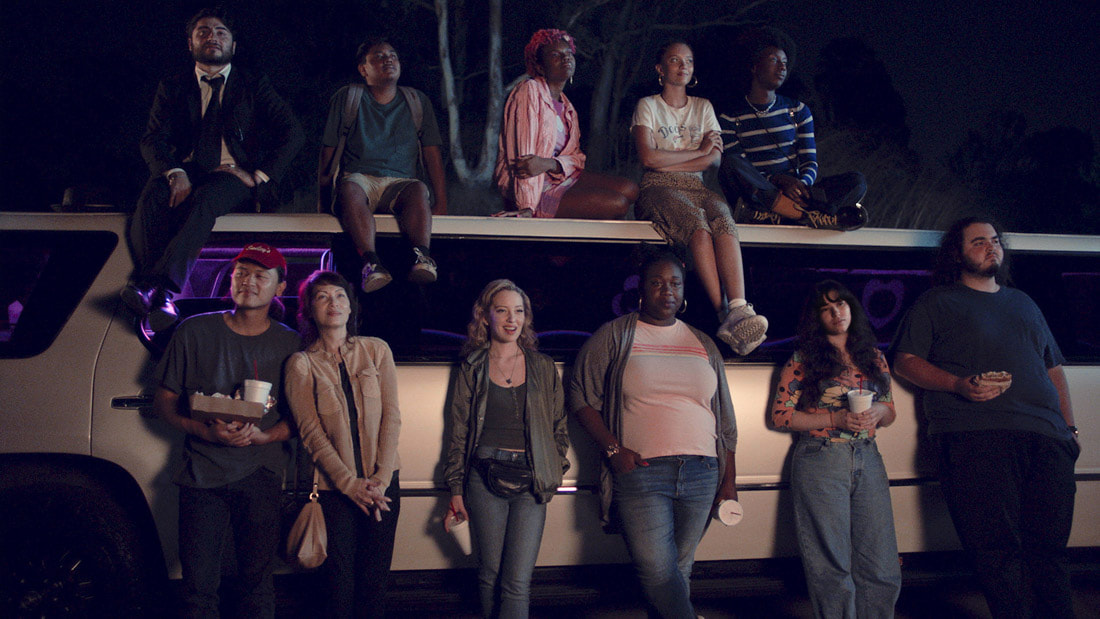
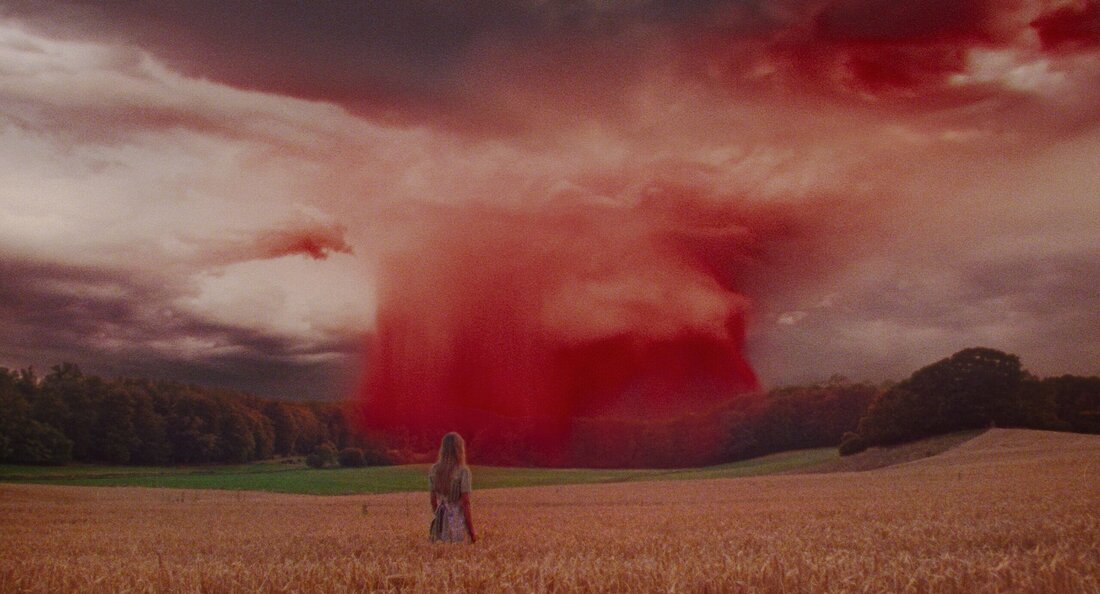




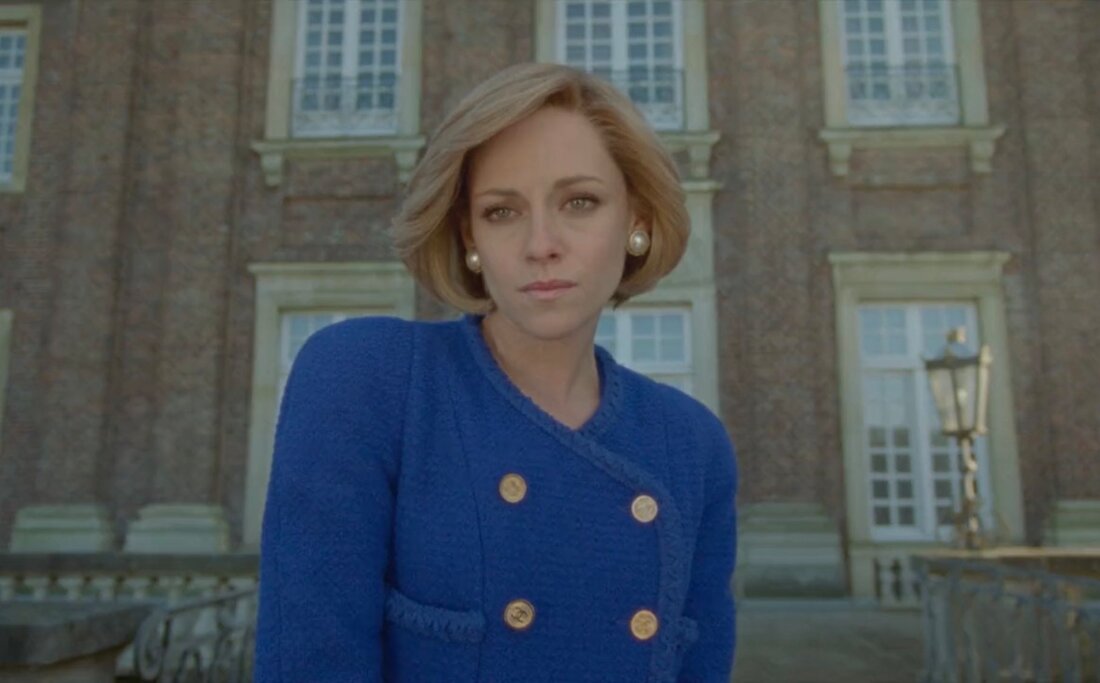

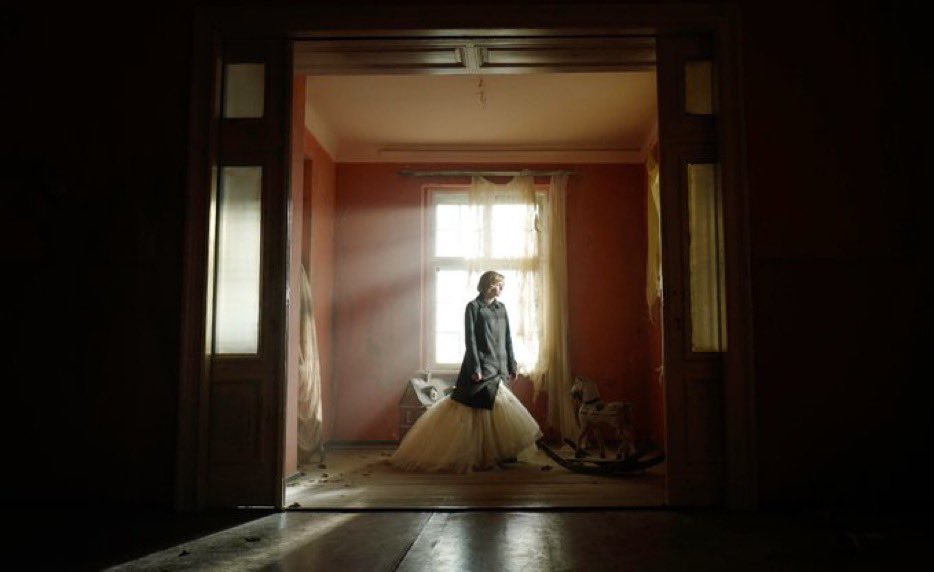
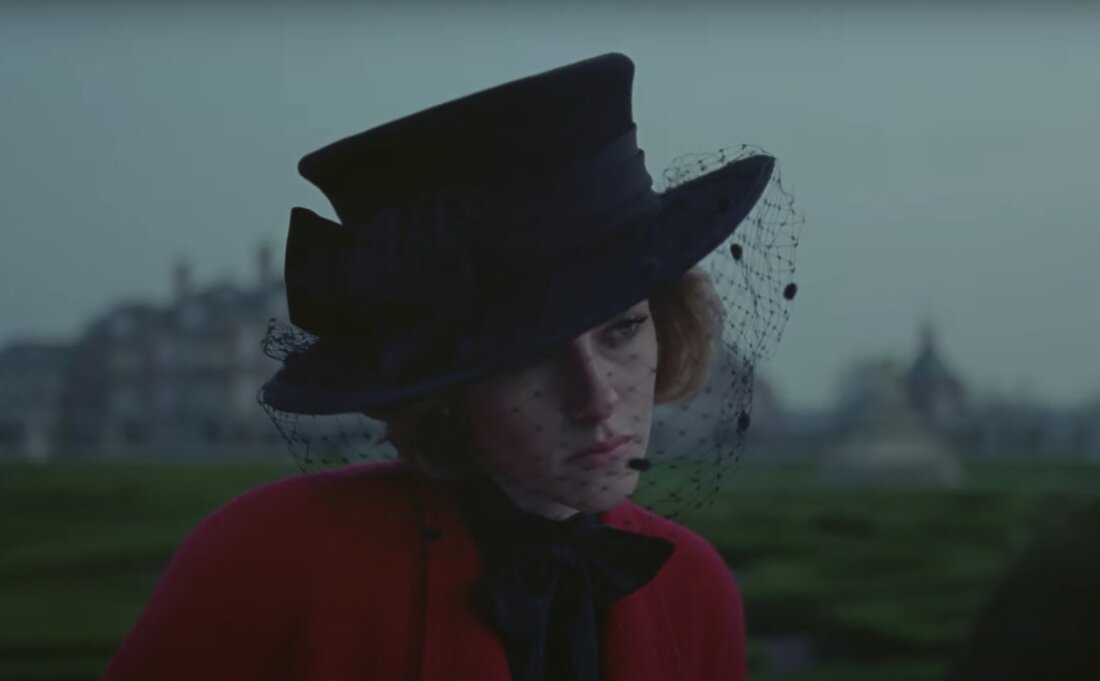
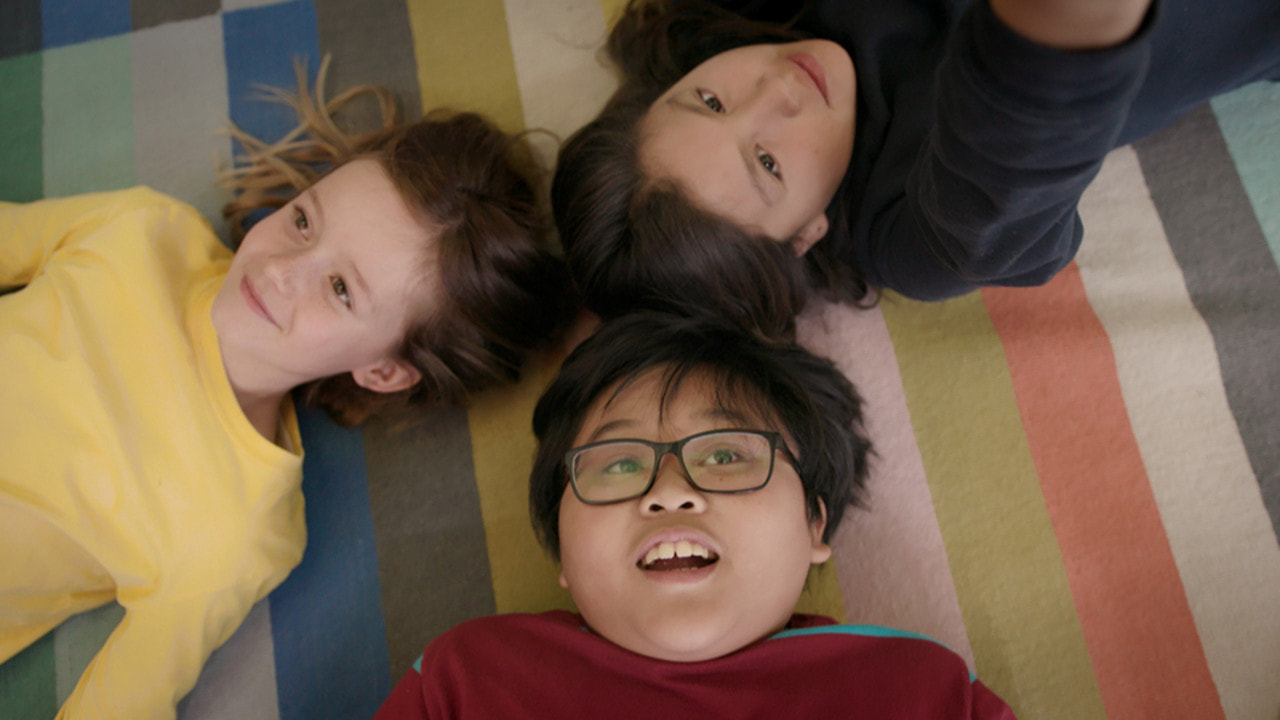
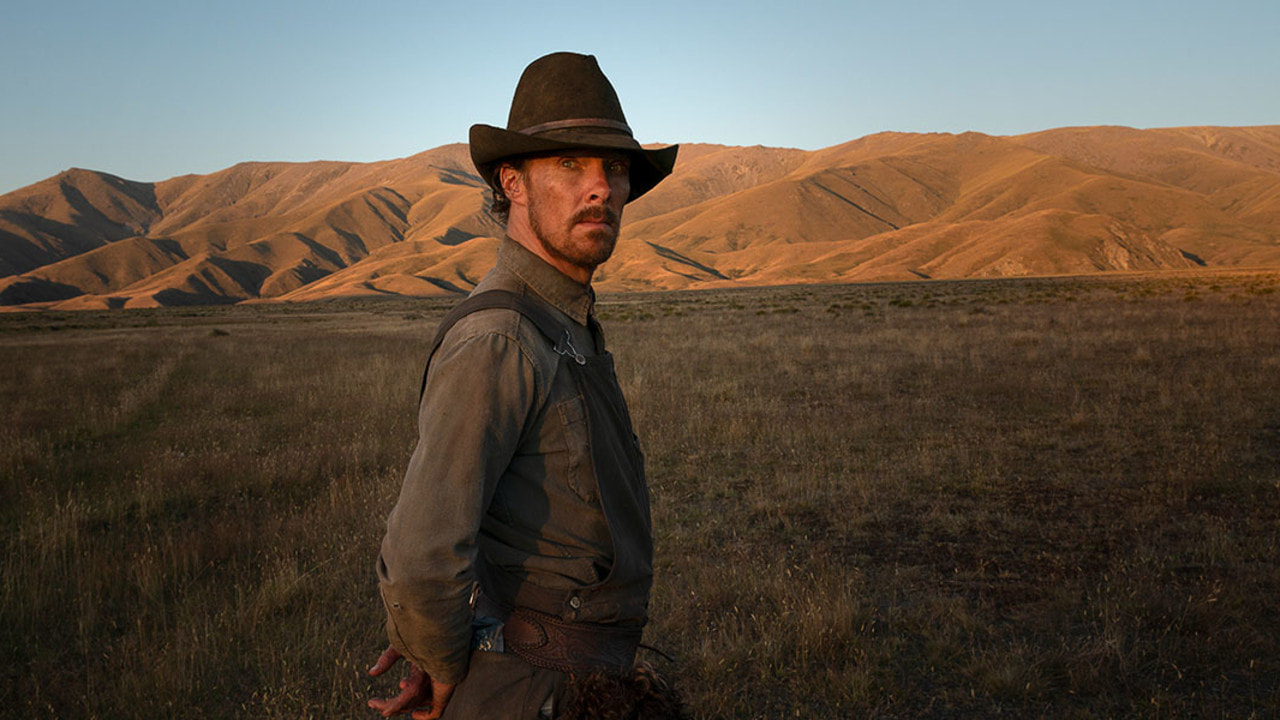
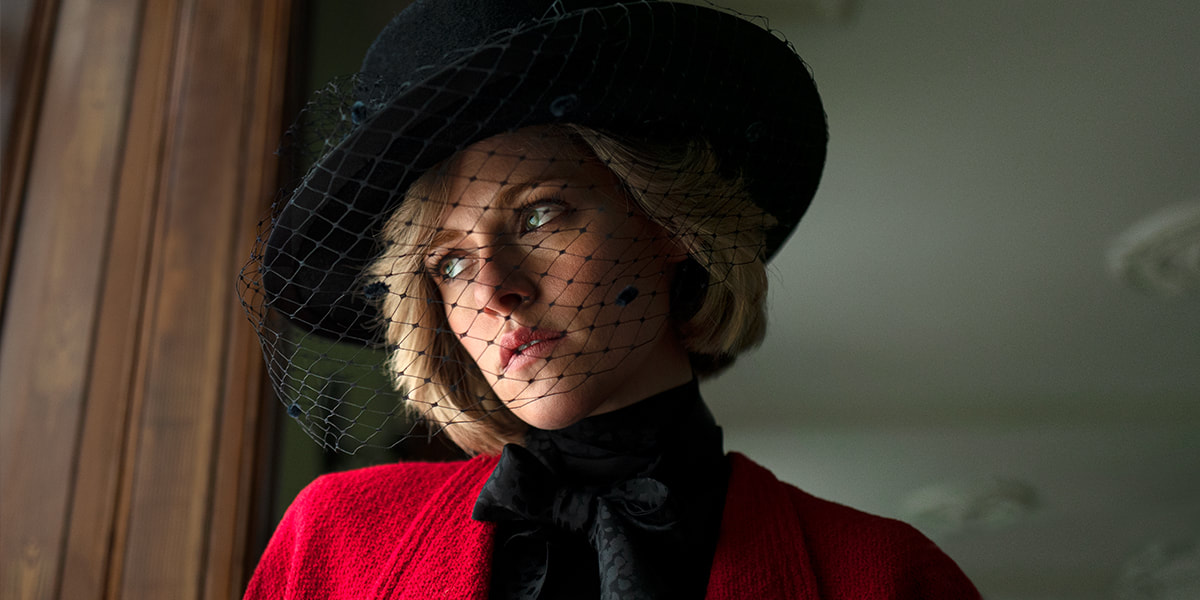
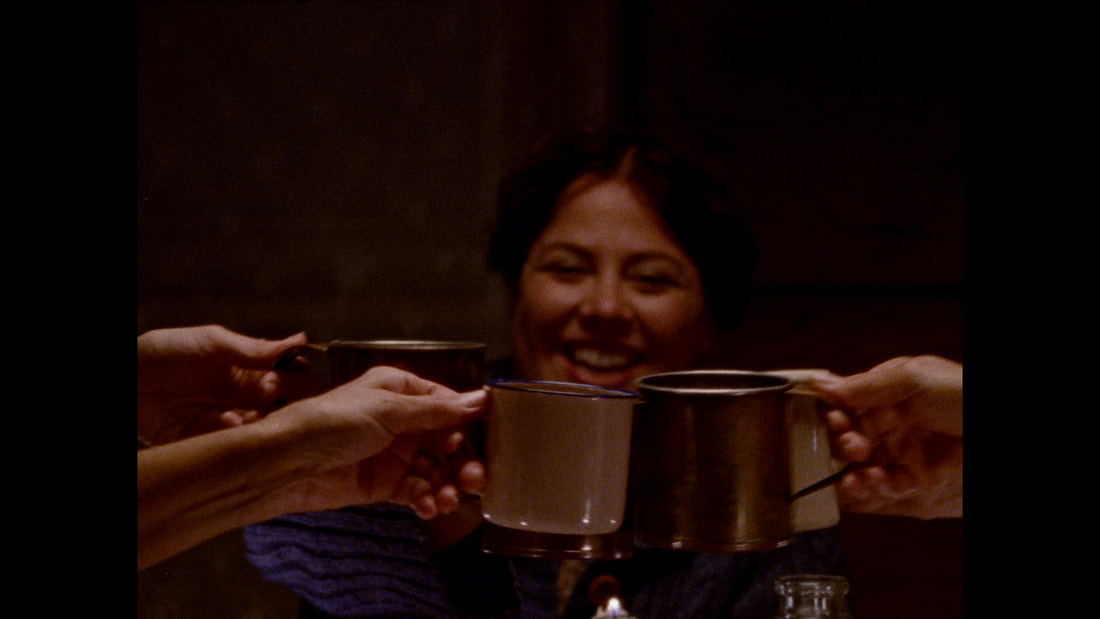
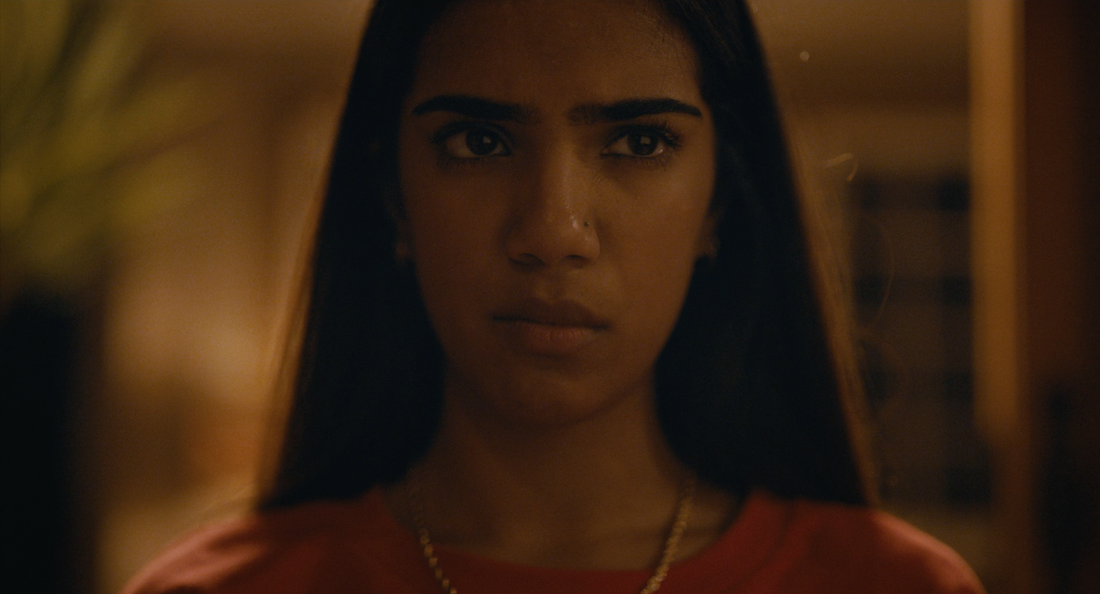
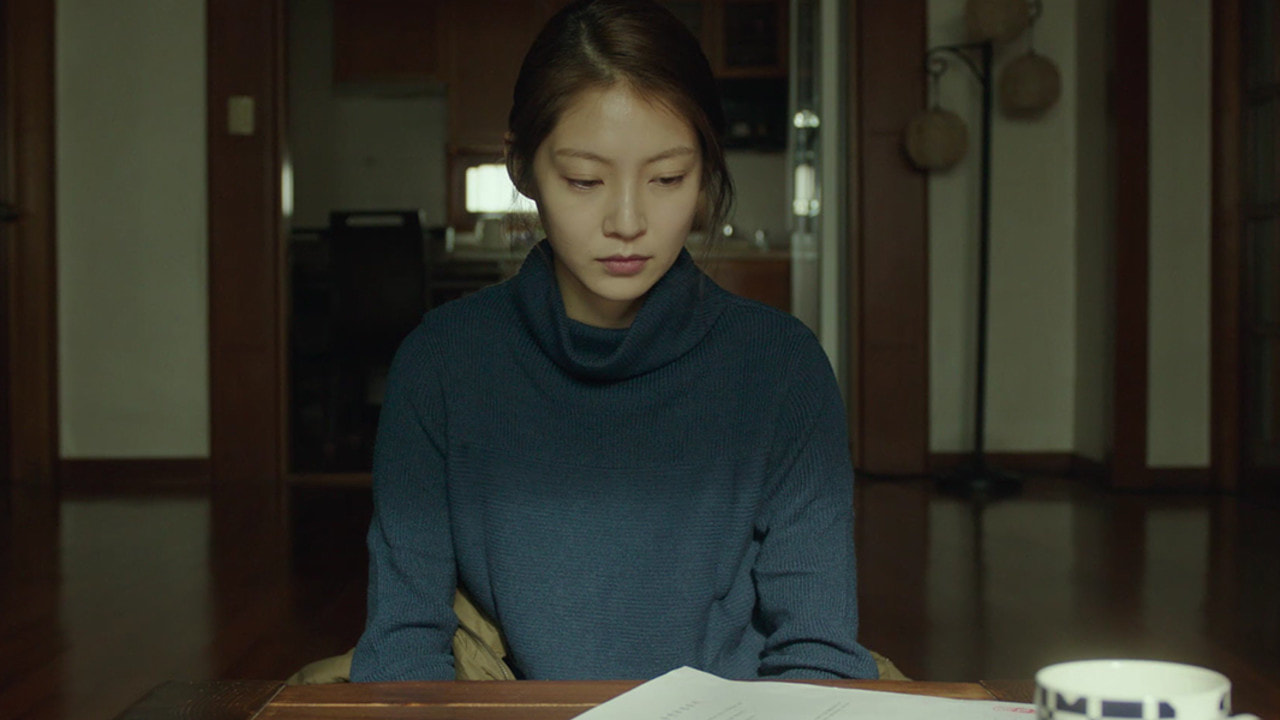
 RSS Feed
RSS Feed